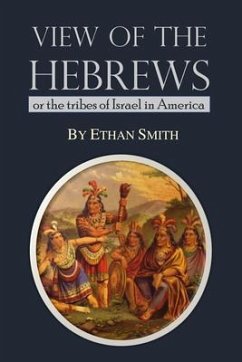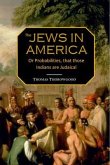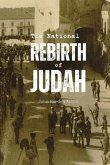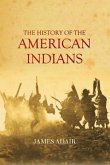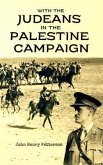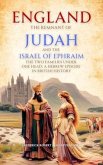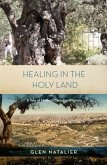In his 1825 book "View of the Hebrews," Rev. Ethan Smith suggests that Native Americans are descendants of the Ten Lost Tribes of Israel. These tribes were said to have disappeared after being taken captive by the Assyrians in the 8th century BCE.
Smith's speculation was inspired by the apocryphal 2 Esdras 13:41, which says that the Ten Tribes traveled to a far country, "where never mankind dwelt"-which Smith interpreted to mean North America. Smith attempted to rescue Indians from the contemporary myth of mound builders being a separate race by making the indigenous people "potential converts worthy of salvation."
"If our natives be indeed from the tribes of Israel," Smith wrote, "American Christians may well feel, that one great object of their inheritance here, is, that they may have a primary agency in restoring those 'lost sheep of the house of Israel.'"
The Book of Mormon shares some thematic elements with View of the Hebrews. Both books quote extensively from the Old Testament prophecies of the Book of Isaiah; describe the future gathering of Israel and restoration of the Ten Lost Tribes; propose the peopling of the New World from the Old via a long sea journey; declare a religious motive for the migration; divide the migrants into civilized and uncivilized groups with long wars between them and the eventual destruction of the civilized by the uncivilized; assume that Native Americans were descended from Israelites and their languages from Hebrew; include a change of government from monarchy to republican; and suggest that the gospel was preached in ancient America.
Early Mormons occasionally cited the View of the Hebrews to support the authenticity of the Book of Mormon. In the 20th century, Mormon scholars noted the parallels between View of the Hebrews and the Book of Mormon and suggested that Joseph Smith had used View of the Hebrews as a source in composing the Book of Mormon, or that he was at least influenced by the popular 19th-century ideas expounded in the earlier work. It is unknown if Joseph Smith had access to View of the Hebrews when he dictated the Book of Mormon; he did quote from View of the Hebrews in 1842.
Ethan Smith (1762-1849) was a New England Congregationalist clergyman. Smith served congregations for several years at a time in New Hampshire, Vermont, and Massachusetts. He accepted an appointment as "City Missionary" in Boston. He also served as a supply pastor for vacant pulpits.
Smith's speculation was inspired by the apocryphal 2 Esdras 13:41, which says that the Ten Tribes traveled to a far country, "where never mankind dwelt"-which Smith interpreted to mean North America. Smith attempted to rescue Indians from the contemporary myth of mound builders being a separate race by making the indigenous people "potential converts worthy of salvation."
"If our natives be indeed from the tribes of Israel," Smith wrote, "American Christians may well feel, that one great object of their inheritance here, is, that they may have a primary agency in restoring those 'lost sheep of the house of Israel.'"
The Book of Mormon shares some thematic elements with View of the Hebrews. Both books quote extensively from the Old Testament prophecies of the Book of Isaiah; describe the future gathering of Israel and restoration of the Ten Lost Tribes; propose the peopling of the New World from the Old via a long sea journey; declare a religious motive for the migration; divide the migrants into civilized and uncivilized groups with long wars between them and the eventual destruction of the civilized by the uncivilized; assume that Native Americans were descended from Israelites and their languages from Hebrew; include a change of government from monarchy to republican; and suggest that the gospel was preached in ancient America.
Early Mormons occasionally cited the View of the Hebrews to support the authenticity of the Book of Mormon. In the 20th century, Mormon scholars noted the parallels between View of the Hebrews and the Book of Mormon and suggested that Joseph Smith had used View of the Hebrews as a source in composing the Book of Mormon, or that he was at least influenced by the popular 19th-century ideas expounded in the earlier work. It is unknown if Joseph Smith had access to View of the Hebrews when he dictated the Book of Mormon; he did quote from View of the Hebrews in 1842.
Ethan Smith (1762-1849) was a New England Congregationalist clergyman. Smith served congregations for several years at a time in New Hampshire, Vermont, and Massachusetts. He accepted an appointment as "City Missionary" in Boston. He also served as a supply pastor for vacant pulpits.
Dieser Download kann aus rechtlichen Gründen nur mit Rechnungsadresse in A, D ausgeliefert werden.

